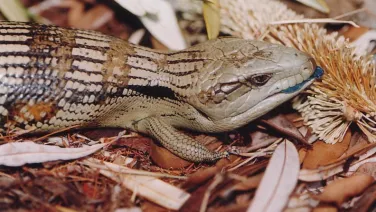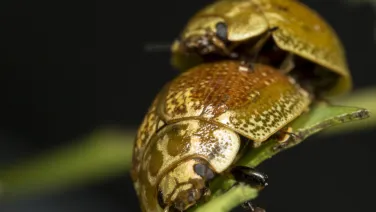News & events
News & events
Find out about our latest news and events.

A recent study found that juvenile blue-tongue lizards have adult-like learning ability which might give them the edge they need to survive all by themselves.

Meet Dr Jennie Mallela, and of course she’s clever enough to have a PhD.

Dan Noble and his research group explore how early developmental experiences impact physiology and metabolic function, and subsequently life history, using model lizard species.

David Duchêne uses phylogenomics to study the diversification of Australian marsupials.

A region's climate has a greater impact than landscape on how many languages are spoken there, new research from The Australian National University (ANU) shows.

Lead researcher Dr Megan Head says her study shows sexually transmitted diseases can act as a mediator for sexual conflict, which occurs when the evolutionary interests of males and females don't align.
Choosing a mate is one of the most important decisions an animal can make. The fitness costs and benefits of mate choice have been analysed extensively in the context of sexual selection, and the neural and hormonal bases of mate choice have provided insights into how animals make such decisions.
Athena Aktipis discusses how an evolutionary approach to understanding and treating cancer can transform it from being a disease that threatens our lives to one we can live with.

Studying physiological responses in animals can tell us a lot about how much environmental stress animals can tolerate, helping to improve our understanding of animal biology and inform conservation management actions.
Bob Wong considers the role that behaviour plays in determining the fate of species under human-induced environmental change.

In anisogamous mating systems, males and females play different roles. This results in sexual differences in morphology and behaviour.

In this talk, I will introduce a suite of new methods and biological insights gained from the assembly and analysis of Eucalyptus genomes. I will start by introducing new methods of assembling and assessing nuclear, mitochondrial, and chloroplast genomes with long- and short-read data.